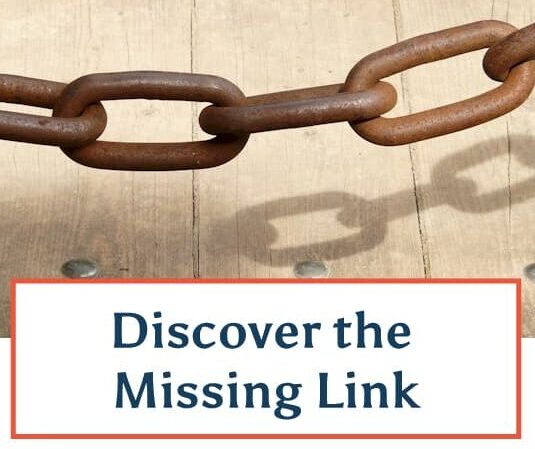I knew one day it would happen. Someone stole the text from my website and used it on their own website. Dirty rotten scoundrels!
According to the US Copyright Office website (http://www.copyright.gov):
“Copyright protection subsists from the time the work is created in fixed form. The copyright in the work of authorship immediately becomes the property of the author who created the work.”
What Do You Do?
Here are some ways to discover which sites have stolen your text:
- Find some text on your website that is so “you” that it’s unlikely that anyone else would write a phrase or sentence that way. Go to Google, and put that phrase or sentence into their search, within quotation marks. For example, one phrase that of my own that I searched on looked like this: “you’ll end up struggling to make your business a success, and all your passion and enthusiasm will drain away.” (Go ahead, type it into Google and see who’s got my text on their site.) You have to put the phrase within quotation marks so that Google knows to search for the whole phrase with all the words right next to each other.
- Make note of the sites that have the same text as yours. While it is completely possible in millions and millions of websites that someone might have written the exact same phrase, it’s worth investigating every site that comes up.
- Another great place to search for plagiarized sites is CopyScape.com
Here are some steps to getting a site to take down plagiarized text:
- Gather as much information about the offending site as you can.
- Print out all pages from their site where the plagiarized text resides.
- Try to find a contact name, phone number and email address from the site.
- Go to WhoIs and get all their registration information. Make sure you capture the name of their hosting company. If they are not in the USA, go to Google and type in “whois” plus the name of their country. You should be able to find a WhoIs site that can get their DNS record for you.
- Finally, write to the offending site owner and tell them that you found plagiarized text on their site. List the URLs of the offending pages along with the copyrighted URLs of your own pages. Give them two or three days to either delete the pages, or re-write them so that they no longer include your text.
- If they fail to reply or comply, contact the Abuse Department at their hosting company and file a DMCA notice.
- You can also file a DMCA notice with Google. While this won’t take down their site, it will remove their site from Google’s search results, which will capture their attention.
This is not the time to play nice guy! Tell the offending site owner that you are copying their hosting company and domain registrar on the letter or email, and do so.
Make sure when you write this email or letter, you don’t use any passive language, and do not say “please”. Demand your rights. It is illegal and unethical for them to do what they did and they need to stop doing it immediately.
Another great resource is the WayBack Machine found at Archive.org. This allows you to check what their websites looked like throughout the years. You may be able to pinpoint the date when those people served themselves with a hefty spoon of your web content.
Someone pointed out to me that sometimes the offender is the website designer, not the owner of the site. If you are an owner of a site, and you did not write your own text, ask your designer where he or she got the text. Make it clear to them that you will not tolerate any plagiarized text and that you will hold them legally responsible in any charge or lawsuit that comes up over the copy on your website.
Some Final Notes:
Always put a copyright statement on your site. If it took you a long time to write your text, you should be the only one benefiting from it, not some unethical person who is looking for a shortcut.
If the site doesn’t comply with your request, you might have to get your attorney involved. Only you can decide if the expense of an attorney is worth it for you.
I have written to the six sites that stole my text. Two have complied and taken down the offending pages within three days of my request. If the others don’t comply, I will be posting their websites in my blog. I’m not afraid of a little publicity, but I bet they are.

 Are You Cut Out To Be Your Own Boss?
Are You Cut Out To Be Your Own Boss?

Karyn,
I am sitting here writting to you with my jaw dropped. I cannot believe people would do this. It shows how much they enjoy your work (in an odd way) but it also shows how little they think of their own capabilities and integlligence.
Good luck in getting them!
Sandra
Sandra,
What I found really amazing was that they didn’t just steal a phrase or two, they stole PAGES of text from my site.
Thank goodness for Google.
Karyn
I would guess this happens all the time. It’s so hard to monitor.
Karen, you have my sympathies. I have had an entire website including look, feel and BANDWIDTH stolen as the yutzes (plural) that did it put the full links to my image files. That really cut to the quick. And they had the temerity to upbraid ME for “not being willing to share as we’re all in this together”. I called their ISPs and got the suckers shut down. Another graphic I made has been on countless websites and we’ve fought every one. Most people simply don’t realize what they’re doing is wrong (though ignorance is no excuse) and a simple reference to: http://www.whatiscopyright.org sets them straight. You might want to put this URL on the main blog page when you write your follow up. Education is everything! Especially when it’s a newbie – most of the time they truly think that anything on the internet is free. Whatiscopyright.org is very explicit and written for the plagiarist.
Another good reference is copyscape.com, which has banners and further protections you can put on your site pages. The one file I KEEP FINDING all over the energy coaching world (my niche) on other people’s websites, I put the CopyScape banner on the head and footer. That’s stopped a lot of it.
Google does rule indeed…
Good Luck!
Maryam Webster
I use the copyscape tool, as well, scanning pages on a somewhat regular basis – and I, too, am amazed at how many sites so blatantly cut and paste from mine to theirs.
What I’ve found, though, is that most often it’s not the site’s owner who has done the deed, but their web designer. And once I show the site’s owner how much has actually been scraped from me (I send them the copyscape URL which beautifully highlights the duplicated text), they typically apologize and quickly have it removed.
Every now and then there’s a particularly silent/non-responsive person and I have to turn up the heat. But for the most part, they’re more embarrassed than I am annoyed.
Hi, Maryam,
How did you ever discover that someone had linked to a graphic on your site?
Karyn
Hi Karyn,
You can take a look at your sites stats in whatever hosting tool you use and if you do depth stats, you can see where the image is being called *from*. When I saw that http://www.dumbasscoach.com (not their real URL) was calling on 20% of my bandwidth, I went and looked, then looked at the source code of the plagiarized pages at multiple sites. A check of the offending site’s source code clearly shows the links back to your own site. And if the links are being hit a lot, it will show up as bandwidth hogging in your stats. A distinct no-no and very illegal. So check the source code wherever they have an image inserted!
Cheers,
Maryam Webster
Karen this is so timely, as one of my students just asked for advice about this very topic. I’ll pass this on to her…thanks!
Ellen
Glad you found it helpful, Ellen. I have this problem so often that my virtual assistant has a monthly “task” to handle plagairism problems. She’s good at it, too! 🙂
Warmly,
Karyn
Hi Karyn,
Great article with solid info I had not thought about.
I just got my blog set up in the past few months and put a lot of time and effort into quality high content articles. It hadn’t occurred to me to be sure no one has/will use my material for themselves w/o permission.
I appreciate the heads up.
Thanks,
Geoff Burnette
Great article. I DO think, as others have mentioned, that people think anything on the Internet is free (and freely available for anyone’s use). As I reduce my tax practice and head towards retirement, I’m on the lookout for appropriate tax folks to refer my clients to. One woman got excellent reviews so I looked at her website before contacting her. There I found 2 pages of copyrighted information that I send out to my clients. It has deadline dates, costs of my services, ways of reducing my fees, etc. She had just removed my name and inserted hers and put it on her website. Interestingly enough, my version wasn’t on my website; she took it from a paper copy. This is not someone I want to refer clients to!
With images when you know which graphic has been stolen you can re-save your graphic with a different file name. Then make a graphic that says “I stole this photo from http://yourwebsite.com I am a thief” (or whatever you want to say) and save that under the old file name. That way it will appear on their site. Of course you only want to do this for a while as they are stealing your bandwidth. I refuse to jump through other people’s idea of HOW I should complain, so I never bother to do it their way, I just complain to them to their advertisers host domain host clients etc etc till they stop. Why should I do the work? Of course with some graphics (I have an art site) its of benefit to me that my artwork is shown, if they have said where it is from and given a link back I let the bandwidth issue pass. With artwork you don’t want your images blocked from any thing with potential so using the server side option of http://www.davidairey.com/stop-image-theft-hotlinking-htaccess/ is not an option I care to use, thought it might suit anyone whose site is not primarily about images such as art/photographs. However, Just following up with my server stats is the best way to go. (If you are not sure ask your host where they are) Plus if you don’t have it, get it. That is, https://www.google.com/webmasters/tools It will help you with your SEO (Search Engine Optimisation) for your website and help you keep an eye on things.